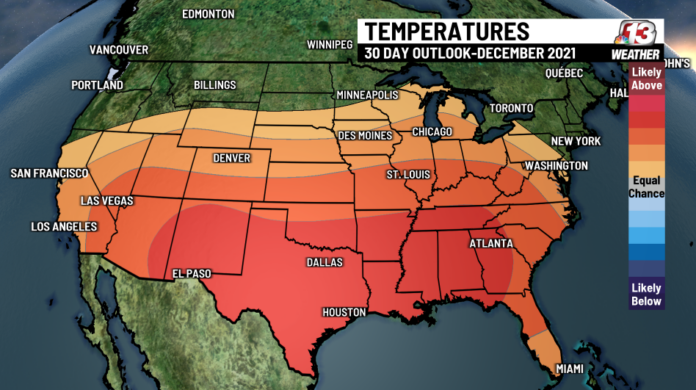Weather Changes impacts our lives in more ways than we realize. Whether you’re planning a picnic, getting ready for a road trip, or just wondering if you’ll need an umbrella today, searching for weather updates has become an essential daily activity for most of us. In this guide, we’ll explore how to effectively search for weather, how to interpret it, and why staying informed is crucial for daily living. We’ll also dive into weather prediction, its accuracy, and how you can make the most out of the available weather tools.
Why Searching for Weather Changes is Important
Knowing the weather in advance allows you to plan your day efficiently. But it’s not just about convenience. Weather updates can be life-saving in situations involving severe weather patterns like storms, heavy rains, or extreme heat. When you search for weather regularly, you stay a step ahead, ensuring your safety and well-being.
Accurate weather searches also help businesses. Farmers rely on accurate weather forecasts to plan their crop schedules, while airlines adjust flights depending on changing weather conditions. Even construction workers need to know what the weather will be like to prevent delays or safety hazards.
How to Search for Weather Changes Easily
There are several ways to search for the weather today. With a few clicks or taps, you can find out the forecast for the day, week, or even the month. Here are some of the most popular and reliable methods for checking the weather:

- Google Search: Simply type “weather” or “weather [city name]” into Google’s search bar. Within seconds, you’ll have a detailed report of the current temperature, humidity, wind speed, and even an hour-by-hour forecast.
- Weather Apps: Apps like AccuWeather, The Weather Channel, and Weather.com provide real-time updates on weather conditions. They often have features like radar maps, severe weather alerts, and even allergy forecasts.
- Smart Devices: Many smart speakers and devices, like Amazon Echo and Google Home, can provide voice-activated weather updates. You can just ask, “What’s the weather like today?” and get instant results.
- Local News Stations: TV channels often dedicate segments to weather updates. Many news websites also provide online weather tracking.
Searching for weather doesn’t have to be complex. With so many tools at your disposal, getting an accurate forecast has never been easier.
How Weather Predictions Work
When we search for weather, the results are often based on complex models that meteorologists use to predict conditions. These models include factors like atmospheric pressure, humidity levels, wind patterns, and temperature. But how accurate are these predictions?
The Science Behind Weather Prediction
Weather prediction, also known as forecasting, uses scientific data to estimate future conditions. Meteorologists use computer models that analyze current weather patterns and predict how they will evolve over time. Some of the tools used in weather forecasting include:
- Satellites: These orbiting devices monitor cloud cover, wind speed, and temperature from space. They provide the initial data that meteorologists analyze.
- Radar: Radar systems help detect precipitation and track storm systems. This data helps predict short-term weather changes like rain or thunderstorms.
- Weather Balloons: Launched into the atmosphere, these balloons carry instruments that measure temperature, humidity, and pressure at different altitudes. This information helps forecast weather changes over the next few hours or days.
How Accurate Are Weather Forecasts?
While weather forecasting has come a long way, it is not always 100% accurate. Short-term predictions, like forecasts for the next few hours or days, tend to be more reliable. Long-term forecasts, such as those predicting weather weeks in advance, are more prone to error.
The accuracy of a weather prediction depends on many factors, including the complexity of weather systems and the tools used to predict them. That’s why it’s always good to check the weather regularly, especially if you’re planning activities that rely on the weather.
Why It’s Essential to Stay Updated with Weather Changes Alerts
Not all weather changes are harmless. Severe weather events like hurricanes, tornadoes, or heavy snow can disrupt daily life and pose significant risks. Staying updated on weather alerts is crucial to ensure your safety during such events.
How to Get Real-Time Weather Alerts
Many apps and devices offer real-time weather alerts, notifying you when there’s a severe weather warning in your area. Here are a few ways to get timely weather alerts:
- Mobile Apps: Most weather apps have a feature that sends push notifications for severe weather alerts. You can customize these notifications to alert you about things like storms, tornadoes, or floods.
- SMS Alerts: Some weather services allow you to sign up for SMS alerts. These alerts will notify you about severe weather conditions via text messages.
- Emergency Broadcast Systems: In many countries, the government uses radio, TV, and mobile networks to send out emergency alerts during severe weather events. These alerts are typically loud and noticeable to grab attention immediately.
Having weather alerts on your phone or device can make a significant difference, giving you time to prepare for any sudden changes.
Weather Changes Across Seasons
Each season brings its own unique weather patterns. Understanding how weather varies across the year helps in preparing for the shifts. Whether it’s scorching summer heat, autumn rain, or winter snowfall, seasonal weather has a direct impact on how we live our lives.
Spring Weather
Spring is often associated with milder temperatures and an increase in rainfall. It’s a season of renewal, but it can also bring about unpredictable weather, including sudden showers and thunderstorms.
Summer Weather
Summer typically brings hot, dry conditions. In some regions, summer heat can become extreme, leading to heatwaves. Staying updated with weather predictions is crucial during this season to avoid heat-related illnesses.
Autumn Weather
Autumn often marks a shift from the warmth of summer to cooler, crisper air. The weather can be highly variable, with warm days and chilly nights. This is also the season when storms and hurricanes are more likely to form, particularly in coastal areas.
Winter Weather
Winter is characterized by cold temperatures, snow, and ice in many regions. The winter storms can disrupt travel, close schools, and create hazardous driving conditions. Accurate weather forecasts help people prepare for freezing conditions and avoid potential dangers.
How to Interpret Weather Reports
When you search for weather online or through an app, you may encounter terms that seem unfamiliar. Understanding the different components of a weather report can help you make better decisions based on the forecast.
Key Terms in a Weather Report
- Temperature: This is the measure of how hot or cold the atmosphere is. It’s usually given in degrees Fahrenheit (°F) or Celsius (°C).
- Humidity: Humidity refers to the amount of moisture in the air. High humidity levels can make it feel much hotter than it is.
- Wind Speed: Wind speed tells you how fast the wind is blowing. High wind speeds often indicate storms or other severe weather.
- Precipitation: This term refers to any form of water that falls from the sky, such as rain, snow, or hail.
- UV Index: This measures the strength of ultraviolet (UV) radiation from the sun. A higher UV index means a higher risk of sunburn.
Understanding these terms allows you to make sense of the weather reports you search for, helping you to better prepare for the day ahead.
How Weather Affects Daily Life
Weather has a significant impact on various aspects of life, from health and safety to travel and entertainment. Here are a few ways that weather can influence daily activities:
Travel Plans
Weather conditions can make or break travel plans. Severe weather events like snowstorms or hurricanes can cause flight delays, road closures, or even trip cancellations. Even mild weather can affect travel, such as rain causing slippery roads. By searching for weather updates regularly, you can avoid potential travel disruptions.
Health Considerations
Weather can also impact your health. Extreme cold can cause frostbite or hypothermia, while excessive heat can lead to heat exhaustion or dehydration. People with respiratory issues might be sensitive to high humidity or air pollution, which can worsen during certain weather conditions. Searching for weather reports that include air quality indices or UV levels can help you stay healthy.
Outdoor Activities
Whether you’re going for a hike, planning a beach day, or organizing an outdoor event, knowing the weather is essential. Rain, strong winds, or scorching heat can affect the success of outdoor activities. Searching for the weather ahead of time ensures that you’re prepared for any unexpected changes.
“Weather affects every aspect of our lives, from the simple pleasure of a sunny day to the life-saving importance of a storm warning.”
Conclusion: The Importance of Staying Informed About Weather
In conclusion, searching for weather updates is a crucial part of modern life. With the right tools, you can find accurate weather predictions, get real-time alerts for severe conditions, and stay prepared for whatever nature throws your way. Whether it’s planning a vacation or preparing for a storm, knowing the weather helps keep us safe, informed, and ready.
By understanding how to search for weather, what weather reports mean, and how weather predictions work, you’ll be equipped to make better decisions for yourself, your family, and even your business. So next time you’re curious about what the sky has in store, remember to search for the weather—you’ll be glad you did.




























